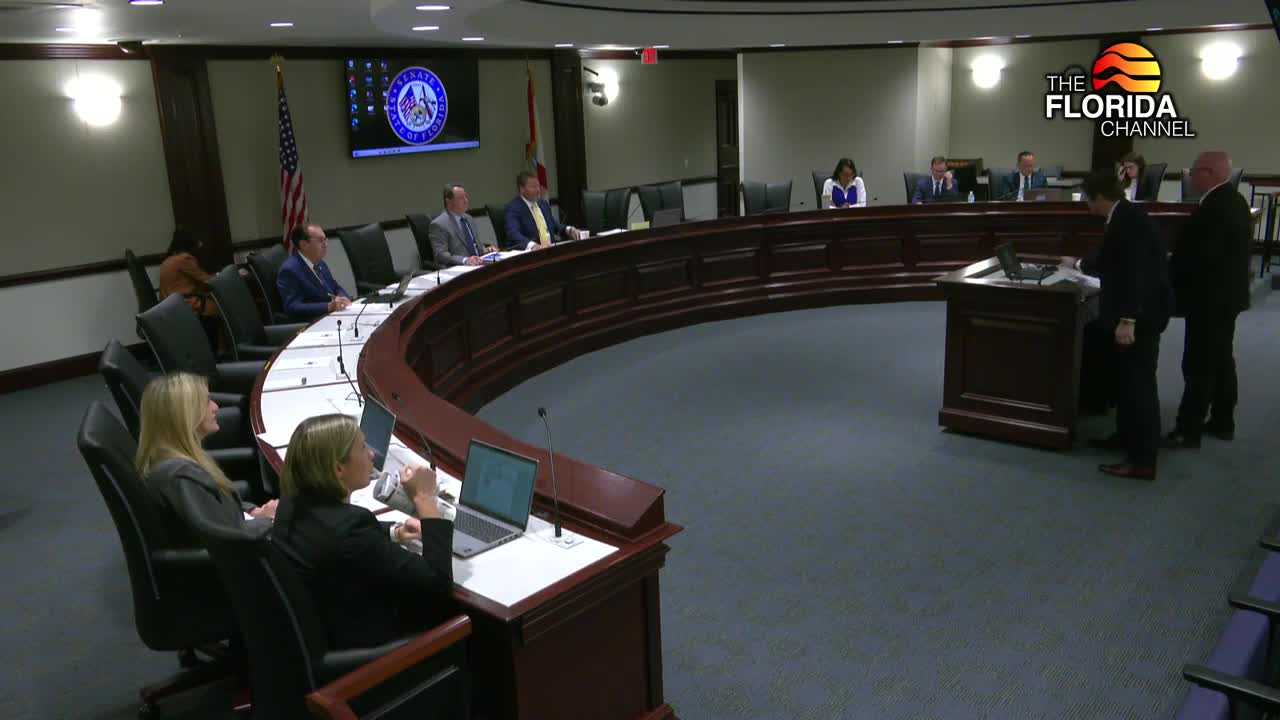DJJ requests $163.4M increase for residential capacity, facility repairs, per-diem increases and IT upgrades
Get AI-powered insights, summaries, and transcripts
Subscribe
Summary
Secretary Matt Walsh told senators the Department of Juvenile Justice seeks roughly $163.4 million more than last year — including $33.2M for expanded/upgraded residential capacity, per-diem increases, fixed capital outlay and a new Broward detention center — to address bed shortages, aging facilities and rising operational costs.
Matthew (Matt) Walsh, secretary of the Florida Department of Juvenile Justice, told the Senate appropriations subcommittee that the department is requesting roughly $925.9 million for 2026–27, an increase of about $163.4 million from the prior year, to address residential bed shortages, aging facilities and operational costs.
Walsh said the department is operating at about 87% capacity and has 374 youth currently waiting for placement; he noted the state lost 378 residential beds during the COVID period. The department’s residential priorities include expanding and upgrading moderate-risk and secure programs ($33.2 million request), increasing per-diem rates for residential providers (a proposed 17% increase tied to rising operational costs) and funding the Florida Scholars Academy for additional teachers and staffing.
Walsh also requested fixed-capital outlay for facility repairs and renovations (including roof, mechanical and ADA improvements), with per-program totals such as $12.7 million for moderate-risk fixed capital, nearly $10 million for secure fixed capital, and $6 million to renovate a vacant facility in Graceville to add 32 beds. He requested $11.9 million for security and life-safety projects and roughly $19.7 million for full renovations across facilities; DJJ maintains more than 500 buildings, more than half over 25 years old.
On detention, Walsh said the department is designing a replacement Broward Detention Center (45,000 square feet) and moving toward construction; he said Broward and Hillsborough projects are priorities and Broward’s replacement will be built to shelter standards for major hurricanes. The department also requested funds for detention screening (the clinical assessment that determines placement needs), complex medical needs funding, IT cybersecurity and a near-term evaluation of the department’s nearly 30-year-old information system with a potential cloud redesign.
Senators asked about leasing costs and the secretary said many leases are for probation offices and that the department would provide a list. Walsh said all requests represented “needs to have” items rather than discretionary "nice to haves." No appropriation votes were taken during the session.
